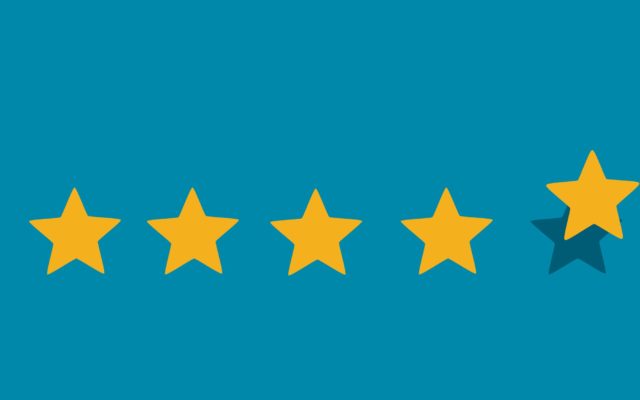I grew up on Wall Street and find myself watching the headlines below like most people read the sports pages. But lately it’s fatiguing me and creating a bit of dystopian depression in my mind – tainting how I look at the world. I find I’m becoming distracted more easily, start worrying about things I can’t possibly affect, and generally have a sense that something really terrible is going to unfold if I don’t remain hyper-vigilant and keep my wits about me.
Recent top headlines on CNBC:
- “Dow falls more than 150 points after US unveils new tariffs on Chinese goods”
- “European markets lower on trade war concerns (FTSE -1.08%, DAX -1.47%, CAC -1.30%)”
- “How Trump’s NATO summit and Putin meeting could shape the future of the West”
- “Facebook faces UK fine of around $660,000 after data scandal found to be illegal”
Technology changing what we think and how we think it.
It’s a phenomenon that’s gripping many people around the world. And it’s fundamentally changing our perceptions and interactions with one another in ways we didn’t anticipate.
A recent Medium.com article entitled The Cognition Crisis by Dr. Adam Gazzaley, MD, talked about how our collective minds are suffering a retreating defeat in the face of information overload.
And if this is happening on a personal scale – what must this incredibly uncertain world, with its rebellious and unpredictable politicians, geo-political upheaval, radically shifting economic metrics, and disruptive technology be doing to our businesses and their ability to stay focused?
More than just coping with the New Normal, it’s about learning to thrive in it.
Some things change…
We’ve entered a world of a bizarre ‘new normal’ where anything can happen, the best prediction is that significant change will undo most all of what we’ve known to be true and real. Those who survive (and thrive) in realities such as this are the ones who can change with the winds as they shift at speed.
But some things stay the same…
Shareholder & investor sentiment for continued dividends and growth of revenue and market share being one of them.
The ever increasing demands of our consumer markets.
The cost and effort of attracting, acquiring and retaining great talent to accomplish ever more profitable product innovations, being another.
Your need to build a great business that can weather turbulent waters, see through the fog of uncertainty and arrive at your predicted destination more or less on time.
Now dispensing with the depressing hype and bad sailing analogies to get to the bottom line.
As a 30 year veteran in both massive multi-national investment banks, consultancies and technology companies, as well as too many hyper-growth SME tech companies to count, I’ve come to realise that the only way to keep your focus when the only certainty is utter uncertainty – is good, old-fashioned objective setting and keeping in front of you that which is urgent, important and not changing.
It’s like having a compass on a jet airplane’s flight deck. It’s the only instrument that keeps its focus on one thing… Magnetic north.
Even if you’re on afterburners heading to the heavens, or in a nose dive heading for the Earth. It just gently rotates there, telling you where true north is, and where you are headed relative to that constant reference point. Handy.
Setting objectives in the absence of a broader and more connected context is a fool’s errand.
And if you’re going to bother to create objectives – you might want to involve possibly everyone in your company – as you are all meant to be achieving the same overall goals in the end.
And the objectives should probably be based on some sort of medium to long-term (if there is such a thing anymore) strategy that the company’s Board and C-level folks have agreed upon. They should likely come up off the paper they were written on and fully to life in a living, breathing illustration – that shows you all the interconnections, dependencies and progress that you’re making towards those objectives.
And to help reduce the onerous task of manually marking your progress for each of those objectives – automation would be useful too.
Lastly – such that we’re not wasting our time with lofty objectives – we ought to indicate 3-4 key results (with hard numbers) that, if achieved, would signal we actually completed that objective.
This is the realm of Objectives and Key Results (OKRs) as penned by John Doerr whilst working with Andy Grove when they worked at Intel together. Check out his most recent book Measure What Matters to get the whole fascinating story.
“Bad companies,” Andy Grove wrote, “are destroyed by crisis. Good companies survive them. Great companies are improved by them.” – John Doerr, Measure What Matters: How Google, Bono, and the Gates Foundation Rock the World with OKRs
The OKR method is in use in well known companies such as Adobe, Amazon, Box, Dell, DropBox, Google, Juniper Networks, LinkedIn, Microsoft, Netflix, Oracle, Twitter, Slack, Yahoo – you get the drift.
Yes, most of these folks are rather famous and relatively new technology companies – but they all have a few things in common you might find germane to your situation:
- They were all rather small start-ups not long ago, and all of them were created in my lifetime.
- They all grew at phenomenal rates within a very short time frame, without falling down.
- Every one of these companies provides critical and high availability services that can’t afford to go drop out.
- Everyone across their entire enterprise knows what needs doing every quarter, and how their role and job activity will affect those goals – everyday of the year – because it’s on their laptop screens at the touch of a button.
If you were identifying with the first three, but I lost you on the 4th – don’t despair. It’s not everyone who has come across Gtmhub or used OKR management software as yet.
I can tell you from personal experience engaging with this capability – it’s game-changing.
Goals that actually lead to productivity gains are no longer the realm of the select few. You just need the right tools to get them right.
Frankly I’ve always hated setting goals for myself – felt too restrictive, and that I was holding myself to a high standard that I’d struggle to maintain. Turns out – once I embraced the goal-setting approach – I actually started to achieve what I otherwise dreamed may happen.
I’ll be writing a series of articles about what OKRs and Gtmhub are seeking to solve – as it’s a rather audacious feat to say the least, and one that needs the enterprise level software intelligence and enablement platform capability of a real thought-leader in this space.
But this isn’t just about fancy tech – this is about human beings. It’s about addressing distraction in an uncertain world, and helping people naturally and comfortably stay focused on the things that matter in addressing powerful human challenges.
The way we work:
- Transparency – across all employees at every level, all functions, all locations
- Employee Experience – making work life as seamless and simple as possible
- Accountability – everyone knows what they’re meant to do, what outcome to achieve
- Empowerment – by sharing openly and clearly what everyone is working on
- Scalability – everywhere, no matter how big or complex the organisation becomes
- Risk – reduce it by ensuring what matters gets the attention and focus it needs
- Distributed Decision Making – knowledge delegated to the people who get it done
- Autonomy – allowing us to get things done at our pace, but informed by everyone else’s
- Self-organization – the best way to scale getting things done in teams
- Networks – they way we work naturally – enable them to operate uninhibited
- Agile/Cross-functional – eliminating hierarchical workflows, and delivering together
- Vision, Mission & Values – underpin the why, what and how we all do – the way we declare
- Fear & Noise Reduction – cancel out the background noise and distractions – stay on course
Feeding our intrinsic motivators:
- Belonging (fitting in) – we’re all connected and all informed
- Significance (desire to stand out) – everyone knows when you’re crushing it
- Fairness (wanting to be treated equally) – no hidden agendas as everyone’s work is in plain view
- Autonomy (preference for our own choices) – operate within your realm – but connected to everything around you
- Positive emotions (feeling happy) – nothing feels better than progressing and winning
- Progress (impulse to improve) – kill that Groundhog Day vibe by seeing real progress everyday
- Meaning (drive to do something valuable) – what you do every day is connected to the objectives that matter to your team, your peers, your department, your company
Addressing these organizational and personal requirements with one core method and terrific tool is a real Nirvana moment for me.
I’ve been chasing hundreds of cool tech solutions to advance human potential and personal empowerment for years now
– and what I love about working on strategy imperatives with Gtmhub is that I get to address all these human issues with one method, one tool.
The future of great work is finally here.
Fixing things at their core is exciting and feels amazing.
So I’ll be writing about how the ‘way we work’ and our intrinsic motivators can be enhanced and supported by OKR methodology – but also ‘geek out’ a bit about the integrative power of the Gtmhub tool in pulling insightful data from a multitude of business intelligence tools to really get your company moving, thinking, acting and engaging at phenomenal speed, enhancing your ability to more effectively pinpoint friction, celebrate wins, course correct, make decisions, resource and engage your people like never before.
Powerful stuff whose time has come – the future of great work is finally here.
Article by channel:
Everything you need to know about Digital Transformation
The best articles, news and events direct to your inbox
Read more articles tagged: Featured, Future of Work







